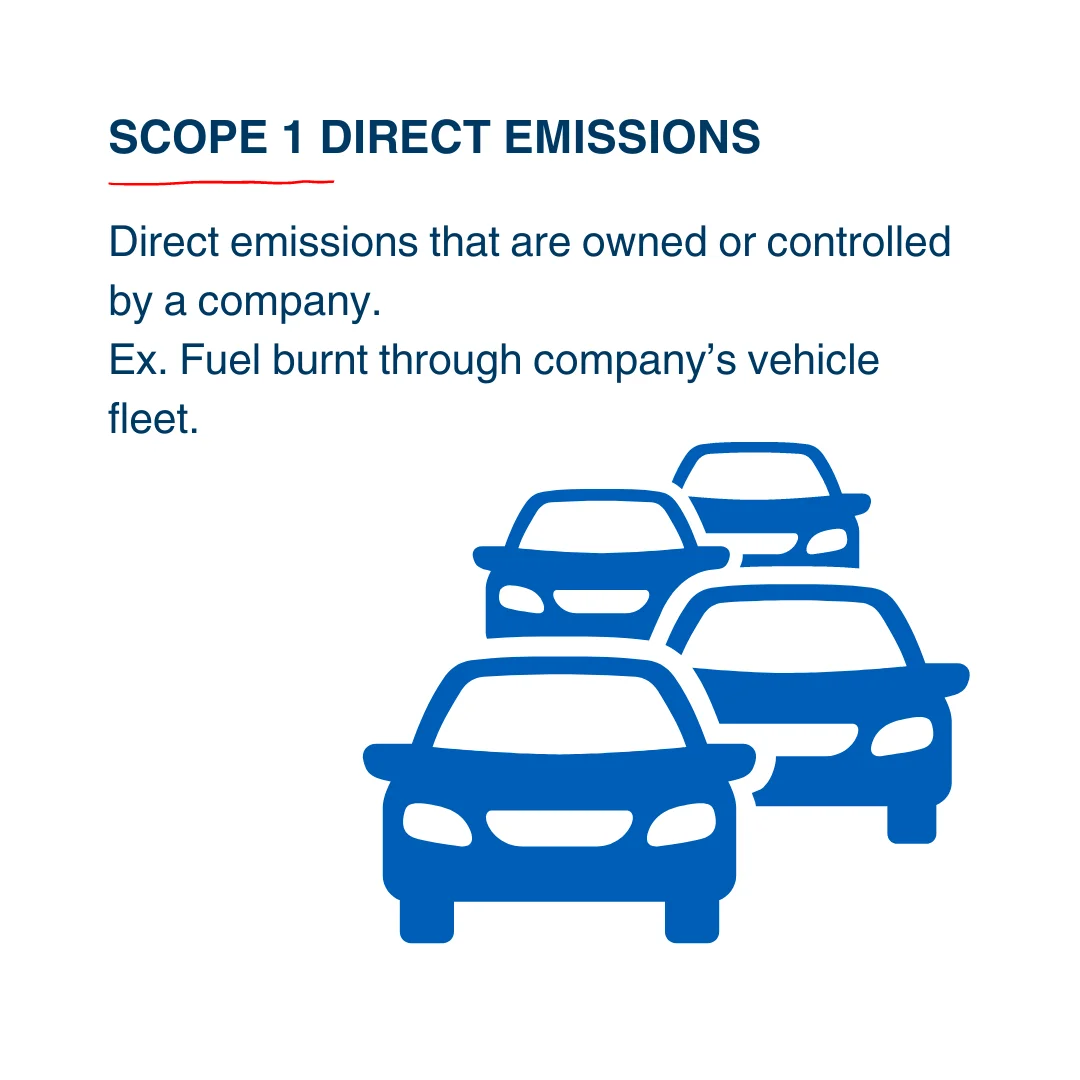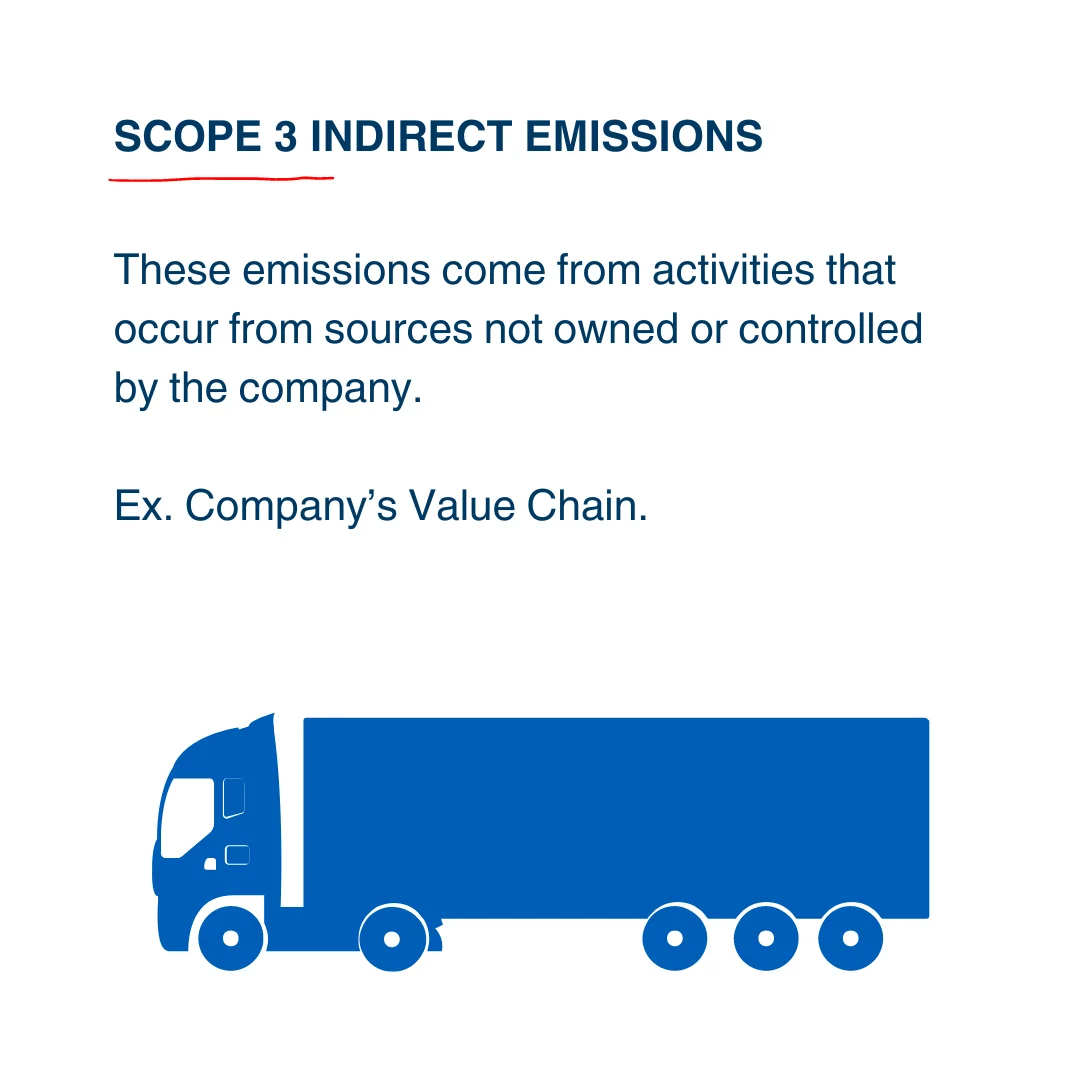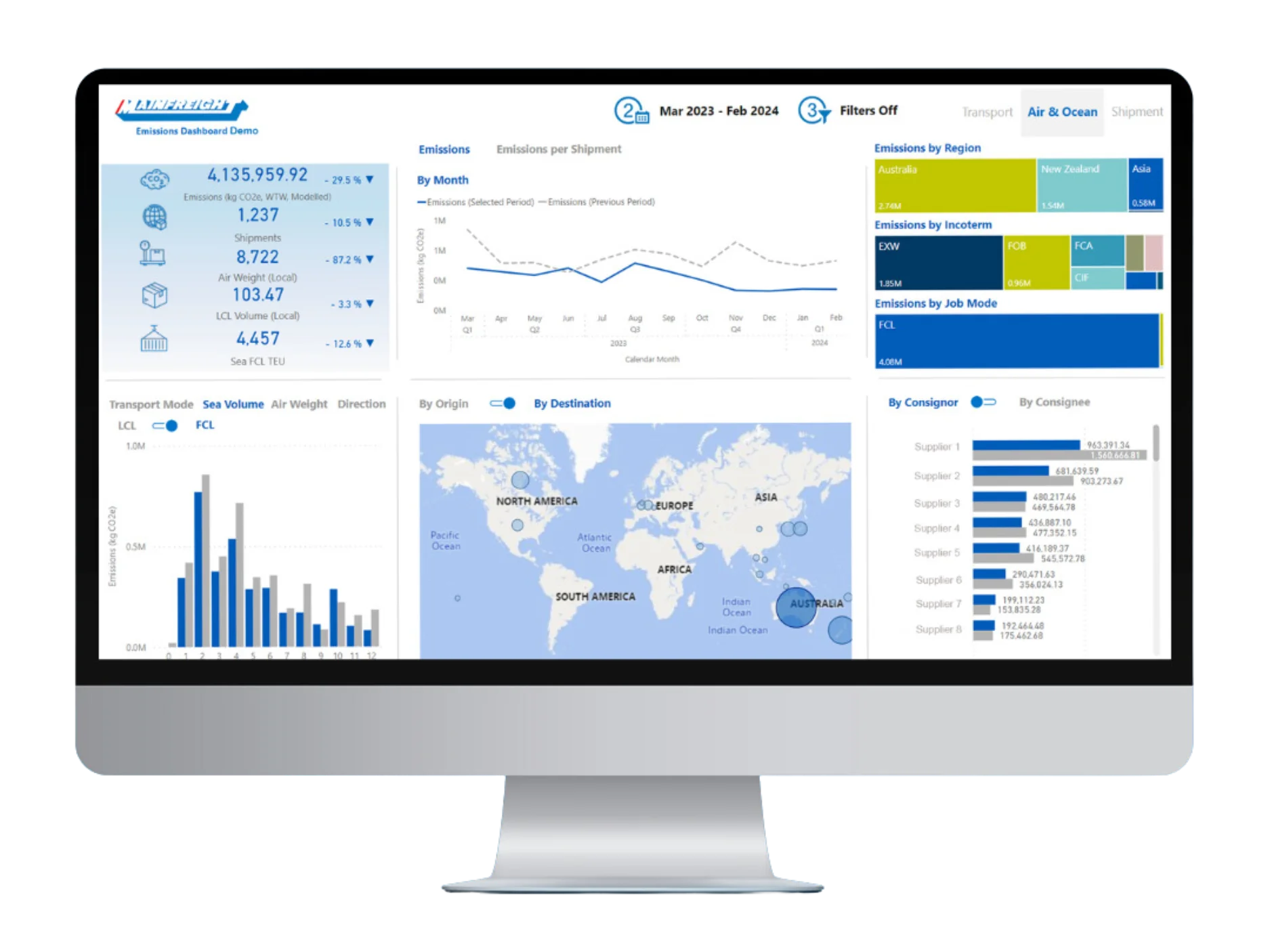- 30 May 2025
Green Logistics and CO2 Emissions: What You Need to Know
Have you ever been driving down the highway and noticed the sign “Without trucks, Australia stops”? This is an important insight into the way our world moves. Supply chain and the movement of freight is the lifeblood of every economy around the world, especially in Australia. Every year billions of tonnes of cargo are transported by planes, trucks, ships and trains.
Take a moment and think about the device you’re reading this on. It has been on a supply chain journey before ever reaching you. It was manufactured in a factory before being transported in a truck to a port to be shipped worldwide and then a truck transported it from the port to a warehouse to then be distributed to a store near you.
Without logistics, the world stops. In saying this, we need to be aware of the environmental impact and carbon footprint it took to get that smartphone from the factory and into your hand. The transportation of goods, whether by road, air, or sea, depends heavily on fossil fuels, which emit CO2 into the atmosphere when combusted. Consequently, the logistics industry is a significant contributor to worldwide CO2 emissions. According to researchers from the Massachusetts Institute of Technology, freight transportation contributes approximately 8% of global greenhouse gas emissions, and is expected to double by 2050 with the growth of Asia, Africa and Latin America economies.
So why are CO2 emissions so bad?
CO2 emissions have multiple harmful effects on the environment. The increased concentration of CO2 in the atmosphere may contribute to temperatures changes and unpredictable weather patterns. Moreover, CO2 emissions contribute to air pollution, which adversely affects human health and ecosystems.
Supply Chain companies have a crucial role to play in reducing CO2 emissions. At Mainfreight, we acknowledge our responsibility to minimise our environmental impact. We employ various strategies and technologies to optimise our operations and reduce CO2 emissions. For instance, we invest in fuel-efficient vehicles and alternative energy sources, such as solar or local carbon solutions like electric trucks and forklifts. We also prioritise route optimisation and load consolidation to minimise fuel consumption.
Where your company’s CO2 emissions are coming from:

Scope 1 - Direct Emissions

Scope 2 - Indirect Emissions

Scope 3 - Indirect Emissions
How Mainfreight utilises technology to achieve sustainability
We recognise the impact we have on the world and with our 100-year vision we are constantly working towards a more sustainable and environmentally friendly future.
By acknowledging the importance of sustainability, we have invested heavily into developing technology that aids our mission for a greener future. One of these technologies is our Maintel Emissions dashboard found in our customer freight management portal Mainchain.
We created this technology to aid our customers in meeting their own sustainability goals and also to satisfy local and global reporting requirements for the locations they operate. Did you know that for many companies, more than 80% of their greenhouse gas emissions accrued in their supply chain? This number is significant not only in achieving your company’s Environmental, Social and Governance Benchmarks but to also provide cost-saving measures when it comes to optimising your supply chain and reporting to your local regulatory body.

The importance of Maintel’s Emissions Portal
Mainfreight’s Emission dashboards allow our customers to see and interact with their supply chain emissions profile. They are developed from our own custom software that tracks your whole freight journey and applies emissions specific to carrier mode or vehicle. This is important for accurate, easy to read emissions reporting that can be easily analysed and understood as part of decarbonization planning as well as for formal verification.
Mainfreight is dedicated to sustainability through innovative technology. Our Maintel Emissions dashboard empowers customers to track and reduce supply chain emissions and easily meet reporting obligations. With investments in fuel-efficient vehicles, route optimisation and sustainability focused technology, we are taking steps towards a greener future.
Find out more
As greenhouse gas emission reporting regulations get tighter, organisations must be proactive in recognising how their carbon footprint impacts not only their supply chain but CSR, costs, and ability to adhere to local body regulations. If you would like to find out more about our Maintel Emissions reporting dashboard please visit our Mainchain page.
Learn more